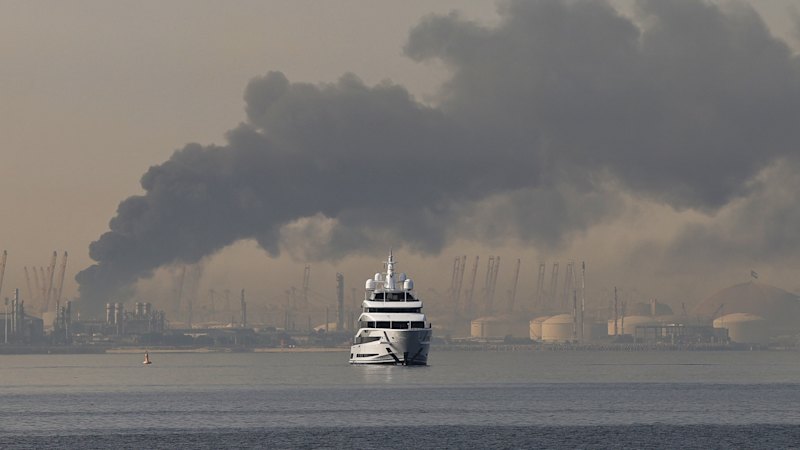
UPDATE: Flinders University in Adelaide has just announced plans that could critically impact the ongoing algal bloom response, potentially leading to the layoffs of key marine biologists. This urgent restructuring threatens the jobs of six renowned marine scientists who play a vital role in addressing the algal bloom crisis in South Australia.
The university’s proposal comes amid a wave of budget cuts affecting multiple Australian institutions, as they grapple with diminished international student numbers. Associate Professor of Oceanography Jochen Kaempf expressed his alarm, stating, “I find the possibility of losing my job absolutely confusing.” Kaempf is one of the few experts in Australia focused on the harmful algal bloom, kerenia mikimotoi, which has wreaked havoc along South Australian beaches since March 2025, leading to the deaths of more than 200 species of marine life.
“This algae is different from others; it doesn’t have a temperature trigger,” said Kaempf, emphasizing the need for specialized knowledge in managing its impact. The algal bloom has already led to significant ecological damage, littering beaches with dead marine animals and threatening public health by potentially triggering asthma when airborne. “The wind can carry it further inland, affecting communities beyond the coast,” he warned.
With the job cuts looming, Kaempf, who is turning 60 next year and has dedicated 27 years to Flinders, is contemplating early retirement. “It’s not easy,” he said, sharing the emotional toll this uncertainty has taken on him. His courses on global climate change attract hundreds of students, underscoring the critical need for experienced educators in the field.
In a statement, a Flinders University spokesperson assured that the institution remains committed to the algal bloom response, stating, “More than 20 Flinders scientists are working to strengthen the state’s ability to respond.” However, the restructuring raises concerns about the continuity of this critical work.
The situation at Flinders University mirrors the broader challenges facing Australian universities. Earlier in September 2025, the University of Technology Sydney proposed cutting 134 full-time jobs and over 1,100 subjects to save 100 million AUD, significantly impacting its schools of international studies, education, and public health.
Higher education institutions are navigating financial hardships that threaten not only jobs but also the quality of education students receive. Flinders University has stated that it is still in the consultation phase regarding the proposed cuts and will consider all feedback before making final decisions.
As the algal bloom crisis continues, the loss of expertise at Flinders could have far-reaching implications. Local communities and environmental advocates are closely monitoring this developing situation, which could affect not only South Australia but also neighboring states like Victoria if the algal bloom spreads further.
Stay tuned for more updates as this story develops, as the future of marine biology at Flinders University and its impact on the algal bloom response hangs in the balance.






